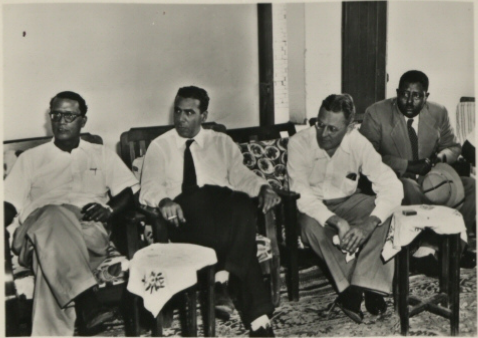🇮🇳 The Silent Architect of Indian Democracy: The Story of Sukumar Sen
In the dust-swirled years after India’s independence, while the nation was still recovering from partition and dreaming of a new beginning, one man quietly took on a challenge that seemed almost impossible — to conduct the first-ever general elections in a newly born democracy.
That man was Sukumar Sen, a brilliant mathematician, a seasoned civil servant, and above all, a believer in democracy.
📚 From Numbers to Nation Building
Born in 1899 in Bengal, Sukumar Sen was a genius from the start. He graduated with a mathematics degree from Presidency College, Calcutta, and later earned his master’s from the University of London. He joined the prestigious Indian Civil Service (ICS) in 1922, a path chosen only by the finest minds of the era.
Though quiet and humble, his sharp administrative skills and clarity of thought earned him a reputation among his peers.
🗳️ A Democracy is Born
In 1950, just a few months after India adopted its Constitution, Prime Minister Jawaharlal Nehru and President Dr. Rajendra Prasad faced a daunting task — to hold the first general election in a country with:
-
176 million eligible voters (most of whom had never voted),
-
3,89,000 polling stations,
-
2,24,000 ballot boxes,
-
And 1,500 political parties and independent candidates!
At a time when 17% of voters were literate, and most people had no idea what a vote meant, the Election Commission needed not just an administrator, but a visionary.
Sukumar Sen was appointed the first Chief Election Commissioner of India on March 21, 1950.
🔧 The Herculean Mission
Sen and his team faced questions no one had answers to:
-
How do you register millions of voters spread across remote villages, forests, and mountains?
-
How do you explain voting to people who had never even seen a ballot?
-
How do you ensure fairness in a nation still healing from communal divides?
But with meticulous planning, patience, and discipline, Sen made it happen.
He introduced symbols for political parties (so even illiterate voters could recognize them), set up massive voter education campaigns, and trained thousands of officers.
When the first general elections were finally held in 1951–52, it became the largest democratic exercise in human history. And it went off smoothly and peacefully — a miracle the world watched in awe.
🌍 Called Again to Serve
Impressed by his work, the United Nations approached him to help conduct Sudan’s first democratic elections in 1953. He agreed — and once again, succeeded.
🌟 Legacy
Sukumar Sen retired in 1958, but his contribution to India remains foundational. He never sought fame. He never gave interviews. He let the numbers — and the votes — speak for themselves.
Today, as over 900 million Indians vote in elections, it is Sukumar Sen’s quiet courage and unmatched intellect that laid the foundation for this democratic miracle.
🕊️ Final Thought
In a world where history often remembers kings and warriors, Sukumar Sen stands tall as a true nation builder — a man who trusted the people, and gave them the power to choose.
He didn’t just count votes. He made every vote count.









